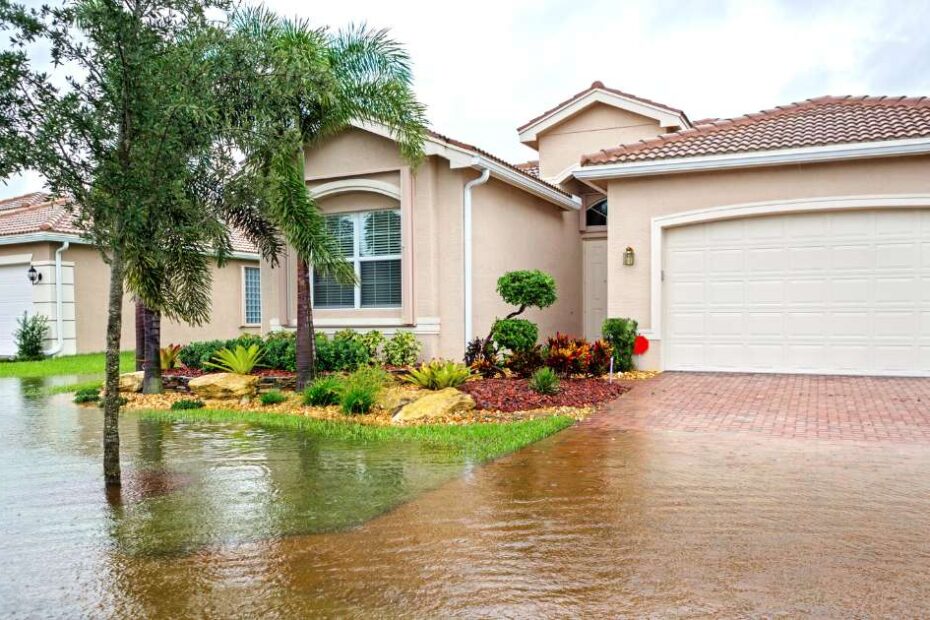And Other Related Tips In Hurricane Preparedness
Three Million households and businesses were affected by the power outage in Houston as Hurricane Beryl plummeted the city in July 2024. The hurricane, classified as a category 1 with 80 mph winds, toppled power transmission towers. Affected citizens lived in heat and crammed in evacuation centers. News outlets reported nearly $30 Billion worth of damages to houses, businesses, and infrastructure in Houston alone after the onslaught of Hurricane Beryl.
As landlords and rental property owners, minimizing storm damage to your property is a priority during hurricane season. Thus, hurricane preparedness in Houston or any other vulnerable area must always be your priority. Being ready will help you minimize the effects and costs of such calamities on your properties, investments, and tenants.
We have prepared a general hurricane preparedness list or guide that can be helpful with any weather disturbance. Read on and know what measures you can take to minimize the impact of hurricanes or other natural disasters on your properties and your business. We have also included finance-related measures and family-related preparations to help you weather the storm. Of course, we recommend that you carry out these measures before the onset of the Hurricane Season, which usually starts in May.
Preparedness List for Hurricanes – For Your Property and Your Rentals
1. Windows and doors are two of the most vulnerable parts of a property that hurricanes can easily damage. The best option is to integrate reinforcements like storm shutters, impact-resistant windows, or grills during the design period. However, for the properties you already have, install aftermarket permanent or temporary reinforcements against harsh weather conditions. Alternatively, you can board up windows and doors with plywood as temporary measures. If time is crucial, you can ask your tenants to reinforce the windows and doors. You can also check with your regulatory agencies if you can include these tasks in the rental agreement.
2. Inspect the roofs of your rentals. If you see weak spots, loose shingles, or tiles, do the necessary repairs as soon as possible to strengthen them. You can also ask a contractor to do the job for you. You can also install hurricane straps or ties to better secure your roof from being blown away in a storm.
3. Ensure your drains and gutters are free of leaves, twigs, and other debris that can clog them. Free-flowing rainwater in your drains prevents damage to your walls, foundations, and other vulnerable parts of the rental property.
4. Trim branches inside trees and remove weak branches as well. Fierce winds can pass through trees with trimmed branches, minimizing their chances of being toppled over. Weak branches can become deadly projectiles during hurricanes with high-velocity winds.
5. Inspect yards and the outside of your house and rental properties. Note loose items such as bicycles, skateboards, outside furniture, and unattached fixtures. Just like weak branches, these can also become projectiles when blown by strong winds. Ask your tenants to inspect their rentals if you do not have the time to do personal inspections. Encourage them to inform you promptly if they see notable damages that need immediate attention.
6. Hurricanes carrying so much water always bring the possibility of flooding. Elevate electrical appliances to prevent damage. Do this also for other furniture and fixtures, especially those of wood. Wood furniture can rot or warp with extended exposure to floodwaters.
7. Scheduling regular inspections and preventive maintenance on your home and rentals underscores hurricane preparedness in Houston. With a proper schedule, you will be able to detect weaknesses early. Also, allow you ample time to do the necessary repairs or reinforcements before the onset of the hurricane season. Such a move will save you from lots of stress and money after a storm’s landfall.
8. Apply new sealant and weather stripping around all doors, windows, and gaps or openings for better waterproofing. Reinforcing them will provide extra protection and prevent rainwater from seeping into your house or rental.
Insurance and Financial Readiness Hurricane Preparedness List
1. Set aside part of your income in a collective emergency fund for property repairs after a calamity. Emergency funds ensure you have funds for your daily needs and the post-hurricane restoration costs of your rentals.
2. Review all your property insurance policies for adequate coverage. Aside from hurricane insurance, consider getting flood, earthquake, fire, and windstorm coverage for protection from most natural calamities. Encourage your tenants to secure renter insurance policies for their personal belongings.
3. Take photographs and videos of your house and rental properties when necessary or before the hurricane season comes over. If not possible, ask your tenants to do it for you. Photographs and video documentation, like evidence, are helpful when claiming insurance.
Communication, Information, Provisions
1. Inform your tenants about the intensity of weather disturbances in your city. You can also direct them to government or agency websites for a hurricane preparedness checklist and disaster mitigating protocols. This webpage is a list of to-dos when there is an incoming hurricane, and also offers a collection of links to storm-related articles and government agency websites.
2. Tune in to local broadcasts from private radio, local government, and other reliable sources of information. Real-time information before a storm’s landfall can give you lots of lead time to secure your rental properties and home. Updates from broadcasts can lead you to safer places and guide you on what to do. Information is crucial for making informed decisions during calamities such as hurricane landfall. Some government agency websites you can consult for essential weather updates are FEMA, National Hurricane Center, and National Weather Service for Houston/Galveston, TX.
3. Prepare provisions in grab bags that last at least three days. Stocks of drinkable water, non-perishable goods, easy-to-prepare food, medicine, toiletries, and first aid kits are must-haves. Emergency kits that include flashlights, batteries, and power banks are equally helpful. You can also include blankets, tents, and extra clothing in your emergency grab bags.
You can refer to this comprehensive checklist and planner from houstontx.gov. It details items to check, bring, prepare, and plan before, during, and after a hurricane onslaught. Here are two other websites to help you get updates.
Our Final Take
As landlords, it is best to always be on top of situations regarding your rentals through the hurricane season. Make all necessary home improvements before the onset of the next hurricane season. If you’re in need of funds for these renovation and improvement projects, GL&L Holdings can help you with our fix and flip rehab loans or DSCR loans. Act now to stormproof and refurbish your rentals to ride out the hurricane season.


